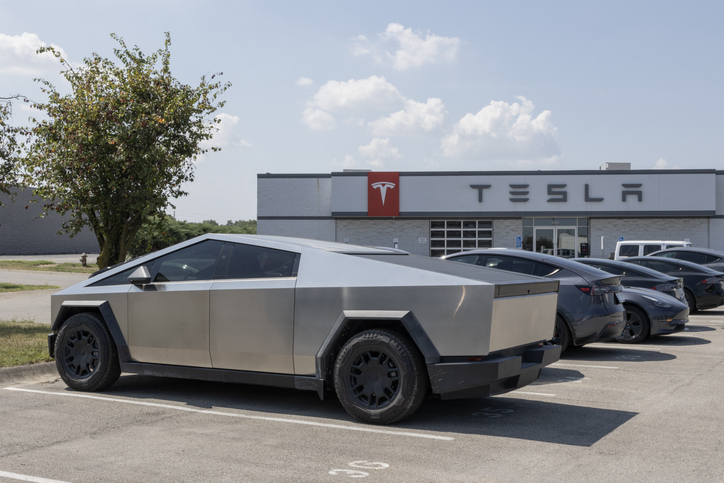Tesla’s Push for UK Policy Overhaul: Elon Musk's Firm Advocates Higher Costs for Petrol Drivers
Elon Musk’s Tesla is once again making waves, not just in the world of electric vehicles (EVs) but also in UK politics. Recent revelations have shown that Tesla actively lobbied the UK government to impose higher costs on petrol and diesel car buyers, positioning the move as a way to accelerate the country’s transition to greener alternatives. While the proposal aligns with Labour’s net-zero goals, it also reflects Tesla’s vested interests in shaping policies to benefit the EV market.
This lobbying effort, revealed through a Freedom of Information request by the EV newsletter The Fast Charge, underscores Tesla’s strategic engagement in the UK’s evolving automotive landscape. However, it has also reignited debates about the fairness and feasibility of penalizing fossil-fuel vehicle owners, many of whom are already grappling with surging living costs.
Tesla’s Vision for UK Transport Policy
In a letter addressed to roads minister Lilian Greenwood, Tesla’s European boss Joe Ward outlined a roadmap for the UK government to adopt stricter measures to promote electric vehicles. Among the recommendations were:
- Expanding EV Mandates to Lorries:
Tesla urged the UK to extend its zero-emission vehicle sales mandates to include heavy-duty vehicles, such as lorries and buses. Currently, EV mandates primarily target passenger vehicles. Expanding these to commercial vehicles could have significant implications for reducing carbon emissions in sectors that rely heavily on diesel. - Imposing Financial Penalties on Polluting Vehicle Purchases:
Tesla proposed that the government should make buyers of petrol and diesel cars pay more, arguing that the funds generated could subsidize EV purchases and infrastructure development. This suggestion aligns with similar policies in other countries, such as Norway, where taxes on fossil-fuel vehicles have accelerated EV adoption. - Strengthening Decarbonization Commitments:
In its letter, Tesla applauded Labour’s strong stance on net-zero targets and decarbonization, indicating support for the government’s 2030 deadline to phase out new petrol and diesel vehicle sales.
Ward’s letter framed these measures as necessary to level the playing field between EV manufacturers and traditional automakers while advancing the UK’s environmental goals.
The UK’s Complex Relationship with Petrol Costs
The UK’s transition to green energy comes at a time when petrol and diesel costs are already a significant burden for many. Fuel prices have remained volatile, driven by global supply chain disruptions, geopolitical tensions, and fluctuating crude oil costs. As of late 2023, petrol prices in the UK averaged around £1.60 per liter, significantly higher than in many other countries. These costs, coupled with rising inflation and a cost-of-living crisis, have strained household budgets.
For many UK residents, petrol remains an unavoidable expense. Public transport options are not universally accessible, and electric vehicles, despite their long-term savings, still carry high upfront costs. Critics of Tesla’s lobbying argue that further penalizing petrol and diesel drivers could disproportionately impact low- and middle-income households that cannot afford the switch to EVs.
Tesla’s Stakes in the UK Market
Tesla has long been a frontrunner in the electric vehicle revolution, but the UK remains a challenging market. Despite growing interest in EVs, adoption rates still lag behind countries like Norway and the Netherlands, where government incentives and infrastructure investments have spurred demand.
In the UK, Tesla faces stiff competition from traditional automakers entering the EV market, including BMW, Mercedes-Benz, and Volkswagen, as well as newer players like BYD and Polestar. Tesla’s push for stricter policies reflects its need to maintain its competitive edge in a rapidly evolving landscape.
Additionally, Tesla’s lobbying efforts are not isolated; they are part of a broader strategy to secure favorable policies in key markets worldwide. The UK, with its ambitious decarbonization goals and strong EV incentives, represents a significant opportunity for Tesla to expand its footprint.
Elon Musk’s Polarizing Role
While Tesla’s lobbying was conducted behind closed doors, Elon Musk’s public persona has added a layer of complexity. Over the summer, Musk openly criticized UK Prime Minister Sir Keir Starmer and the Labour government on social media, even predicting “civil war” in the country. These remarks, along with his controversial comments on other global issues, reportedly led to his exclusion from a high-profile UK government investment summit in September.
Despite this, Tesla’s private praise for Labour’s decarbonization policies suggests a nuanced relationship. Musk’s public criticism and Tesla’s private lobbying highlight the company’s dual approach: leveraging Musk’s influence to capture public attention while engaging policymakers through formal channels to shape regulations.
Related: Tesla’s Year-End Deal Frenzy: Free Supercharging, FSD, and Why You Should Act Now
Related: Could the End of the $7,500 EV Tax Credit Be Tesla’s Gain?
The Broader Impact of Tesla’s Proposals
Tesla’s call to penalize petrol and diesel drivers raises important questions about the balance between incentivizing green energy and addressing social equity. Proponents argue that such measures are necessary to accelerate the adoption of EVs and reduce carbon emissions. They point to countries like Norway, where similar policies have successfully boosted EV market share to over 80%.
However, critics warn that imposing additional costs on fossil-fuel vehicle owners could alienate a significant portion of the population. Many households rely on older petrol and diesel cars as affordable transportation options, and the high upfront costs of EVs remain a barrier for many.
Additionally, expanding EV mandates to lorries presents logistical challenges. While Tesla’s electric Semi truck has garnered attention, the heavy-duty vehicle market is still in its early stages of electrification. Questions remain about the scalability of charging infrastructure and the feasibility of transitioning large fleets to EVs within the proposed timelines.
What Lies Ahead for UK Policy?
Labour’s response to Tesla’s proposals is likely to shape the future of the UK’s automotive industry. The new government has already signaled its commitment to green energy, but balancing environmental goals with public acceptance will be critical. As the UK prepares to introduce its new EV policies, it must address concerns about affordability, accessibility, and infrastructure.
For Tesla, the stakes are high. The company’s lobbying underscores its desire to lead the UK’s EV market, but its proposals will likely face scrutiny from both policymakers and the public. As the debate unfolds, the outcome could set a precedent for how governments worldwide navigate the transition to sustainable transportation.









